SCABEE TCS It is Just Air? Think Again (2025)
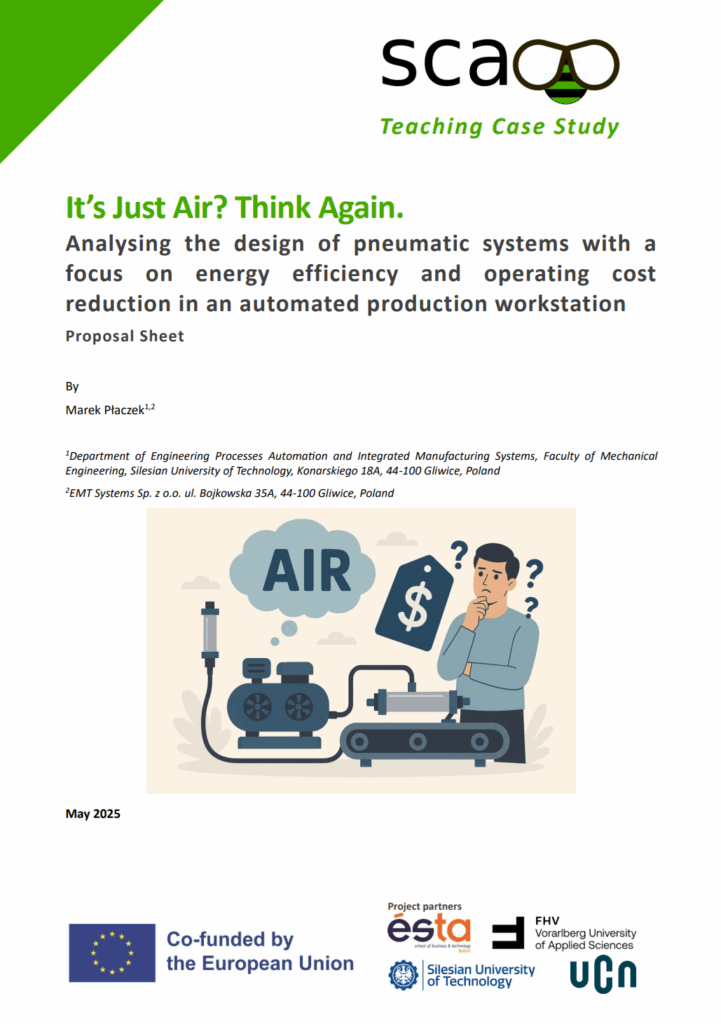
This case study focuses on junior engineers designing a pneumatic system for an automated production workstation operating in continuous three-shift mode. Students compare a standard design with an energy-optimized alternative, analysing technical performance, compressed air consumption, and operating costs.
The project highlights how engineering design choices influence energy efficiency, operating expenses, investment costs, and environmental responsibility in real industrial settings.
SCABEE TCS It’s Just Air Think Again (2025) – Proposal Sheet (EN)Request your copy of the ‘SCABEE TCS It is Just Air? Think Again (2025)’ – Full pack
SCABEE TCS Design for Take Back (2025)

This project examines how CARE, a Danish manufacturer of ergonomic chairs for healthcare and disability use, can enhance sustainability through a product take-back program. Acting as a newly formed sustainability project team, students analyse the current logistics setup, assess environmental impacts through a CO₂-focused life cycle assessment, and develop a generic framework for circular take-back systems.
The case highlights how integrating circular economy principles into product logistics can support environmental sustainability while maintaining technical feasibility, economic viability, and product quality.
SCABEE TCS Design for Take Back (2025) – Proposal Sheet (EN)Request your copy of the ‘SCABEE TCS Design for Take Back (2025)’ – Full pack
SCABEE TCS Return on CO2 (2025)
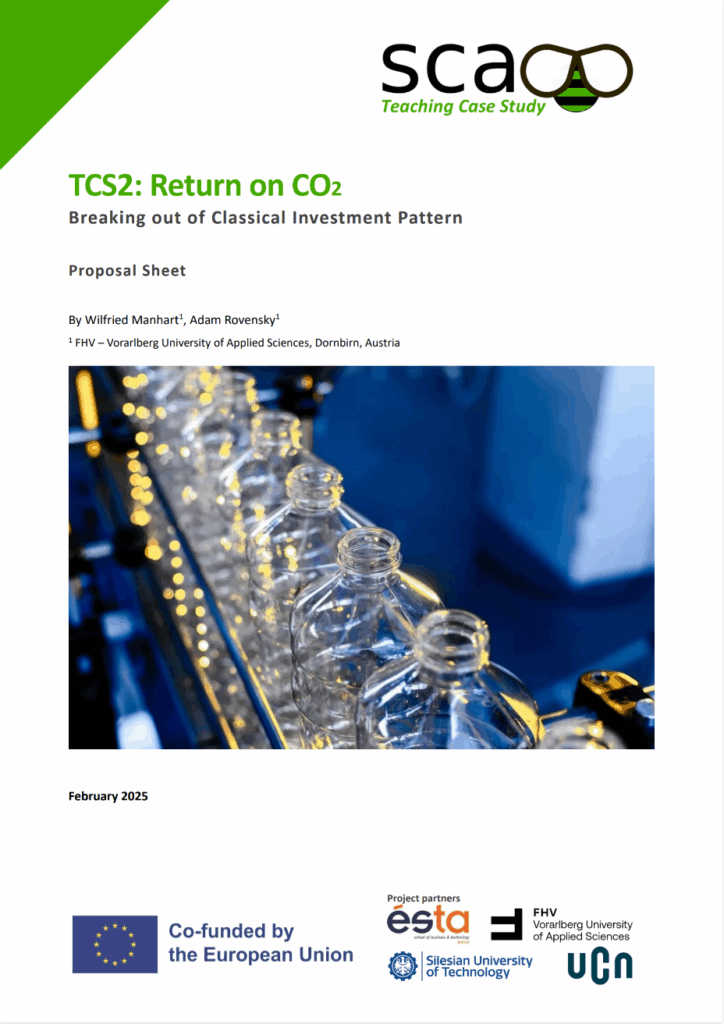
This Teaching Case Study explores how small industrial component suppliers can drive environmental sustainability by adopting CO₂- and energy-reducing innovations within complex manufacturing value chains. The case focuses on a supplier serving the PET bottling industry and examines how decision-making processes can delay or accelerate the adoption of sustainable technologies.
By linking technical innovation with corporate purchasing and selling decisions, the study highlights how companies can evaluate lifecycle costs, energy savings, and environmental impacts to achieve both economic and sustainability goals.
SCABEE TCS Return on CO2 (2025) – Proposal Sheet (EN)Request your copy of the ‘SCABEE TCS Return on CO2 (2025)’ – Full pack
SCABEE TCS Ictyos (2025)

Ictyos transforms fish skins from the food industry into eco-friendly “sea leather,” combining French tannery know-how with sustainability. The skins are dyed and finished as exotic leather, sold mainly to B2B customers for fashion goods such as bags, shoes, and belts.
As a newcomer to the upcycling luxury market, Ictyos faces two challenges:
- Expanding applications beyond traditional fashion accessories and reaching new customer segments.
- Promoting its products to both businesses and consumers, who may associate fish leather with negative perceptions.
Request your copy of the ‘SCABEE TCS Ictyos (2025)’ – Full pack
SCABEE TCS Ananké (2024)
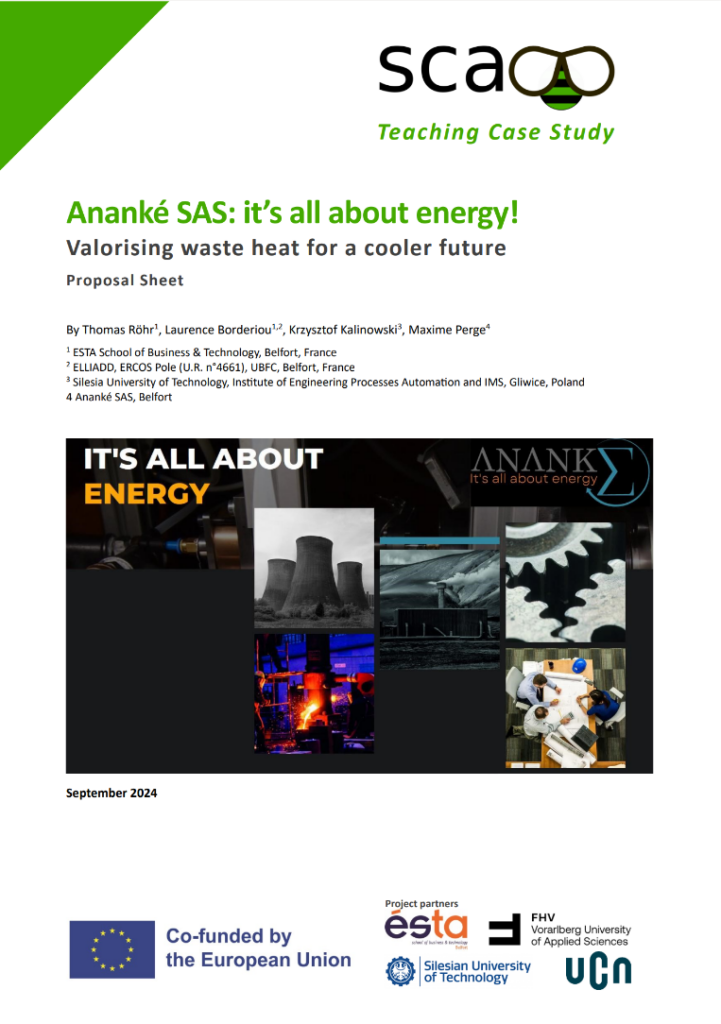
Students are Junior Project Managers at Ananké SAS, an engineering firm in Belfort, France, specializing in heat recovery. Their client, Alsace Burnhaupt Metallurgie SARL, a metal parts producer for the automotive industry, seeks to reduce energy consumption and carbon emissions to meet EU and national regulations.
Two potential solutions are:
- Reinjecting preheated air into the oven to lower gas consumption.
- Using recovered heat to warm the shopfloor in winter.
Students must analyze these options, recommend the best solution, and prepare for a commercial proposal. Optionally, they may develop a project plan for the chosen solution.
SCABEE TCS Ananké (2024) – Proposal Sheet (EN)Request your copy of the ‘SCABEE TCS Ananké (2024)’ – Full pack
SCABEE TCS AlluVance Solutions GmbH (2024)
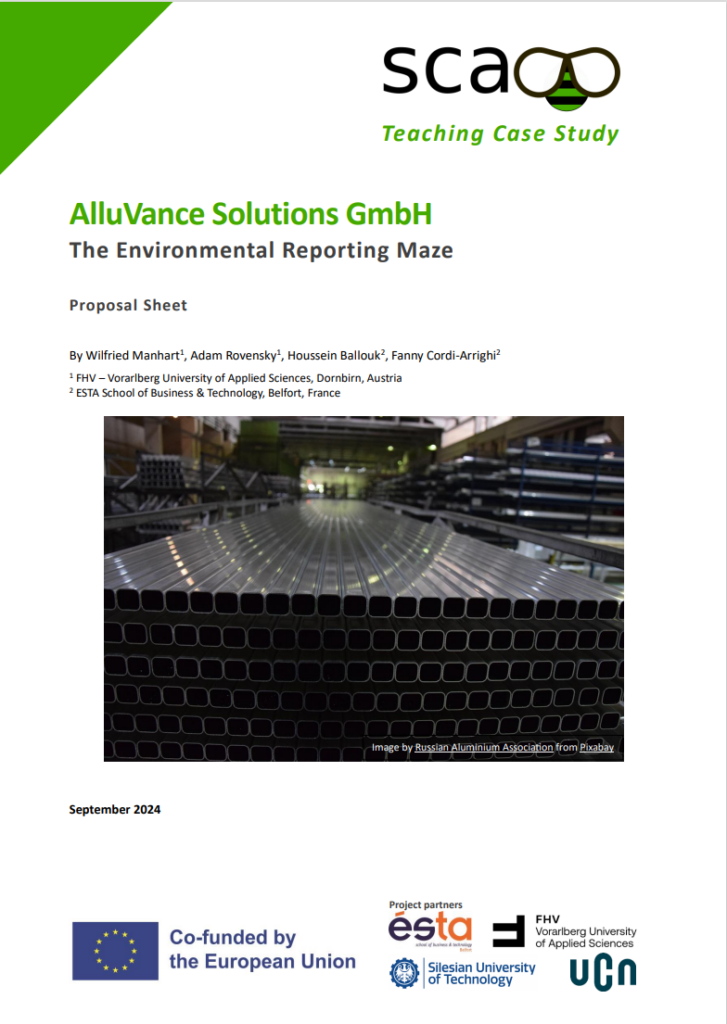
In this Teaching Case Study, students must think about replacing aluminium profiles of a work bench production company to lower the product’s CO2 emissions.
They discover the impact of transport, recycled aluminium and suggest a possible way.
They also learn that recycled aluminium is also a rare material as the overall increase in aluminium needs is much higher then the recycled volumes, and thus it is not (easily) possible to switch, and that thinking about new, more sustainable materials might be the better way.
SCABEE TCS AlluVance Solutions GmbH (2024) – Proposal Sheet (EN)Request your copy of the ‘SCABEE TCS AlluVance Solutions GmbH (2024)’ – Full pack
SCABEE TCS Sun4Prod (2024)
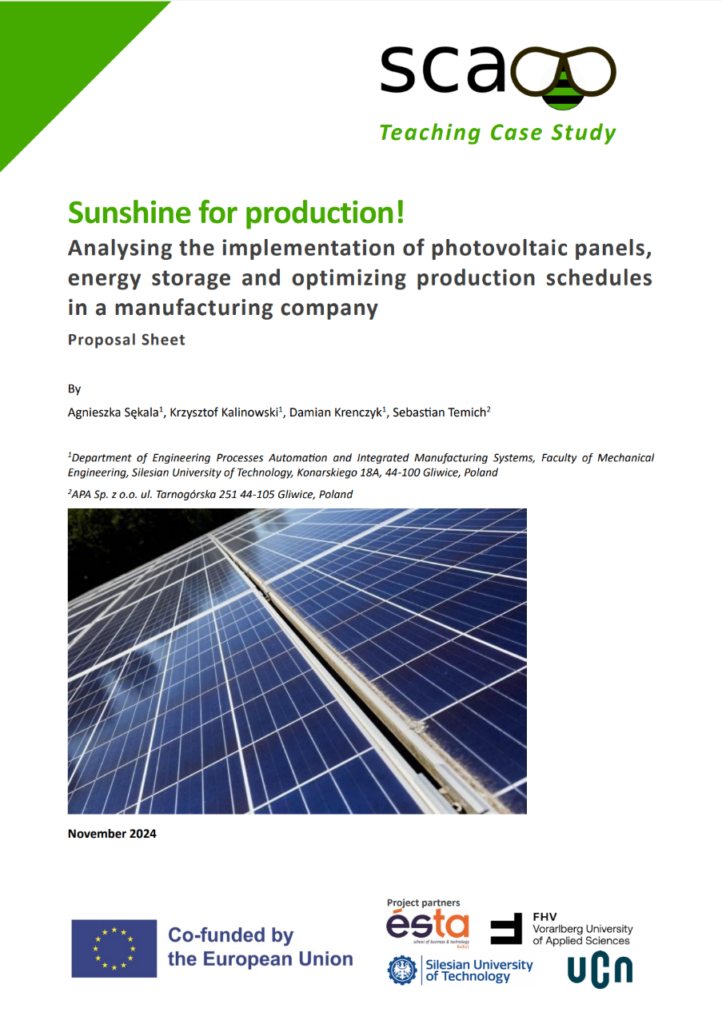
Solar energy is a renewable energy that is abundantly available at some times of the day and the year in Europe. This leads to the difficulty of always having sufficient energy on site.
Students analyse a given plant situation and develop a system of solar panels and energy storage to fit with the aim of a company to become (more or less) independent from an external energy.
SCABEE TCS Sun4Prod (2024) – Proposal Sheet (EN)Request your copy of the ‘SCABEE TCS Sun4Prod (2024)’ – Full pack
SCABEE TCS Design for Material Change (2024)
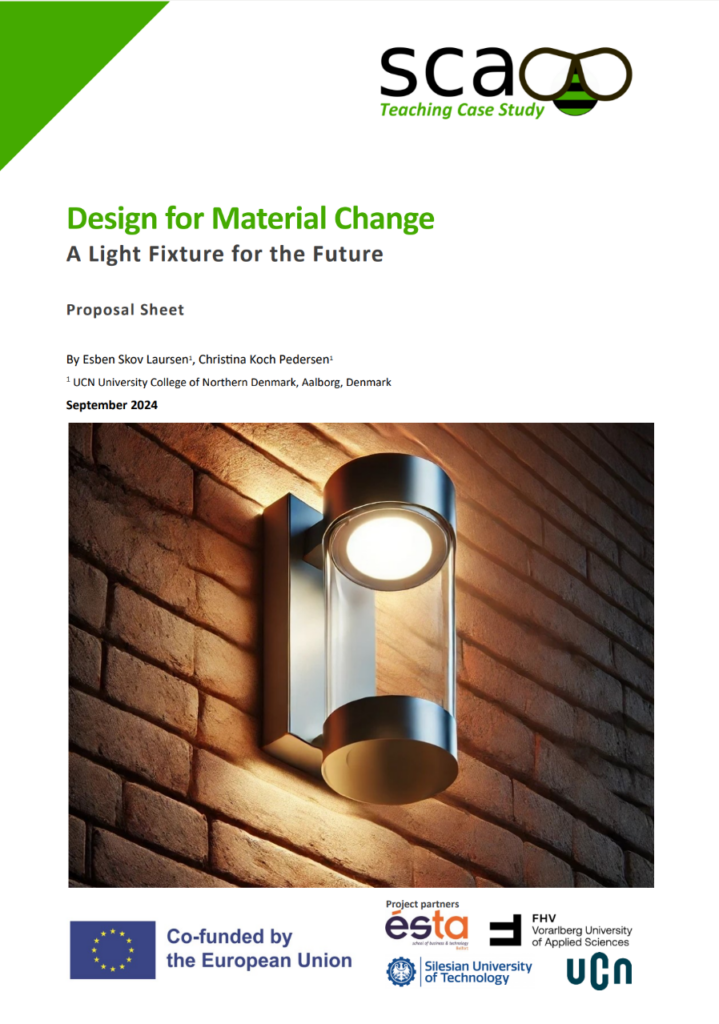
In this TCS, students are working on an aluminium light fixture.
The aim is to conduct a life-cycle-analysis and to think about reducing the carbon footprint of the product through changed design and/or materials.
SCABEE TCS Design for Material Change (2024) – Proposal Sheet (EN)Request your copy of the ‘SCABEE TCS Design for Material Change (2024)’ – Full pack
